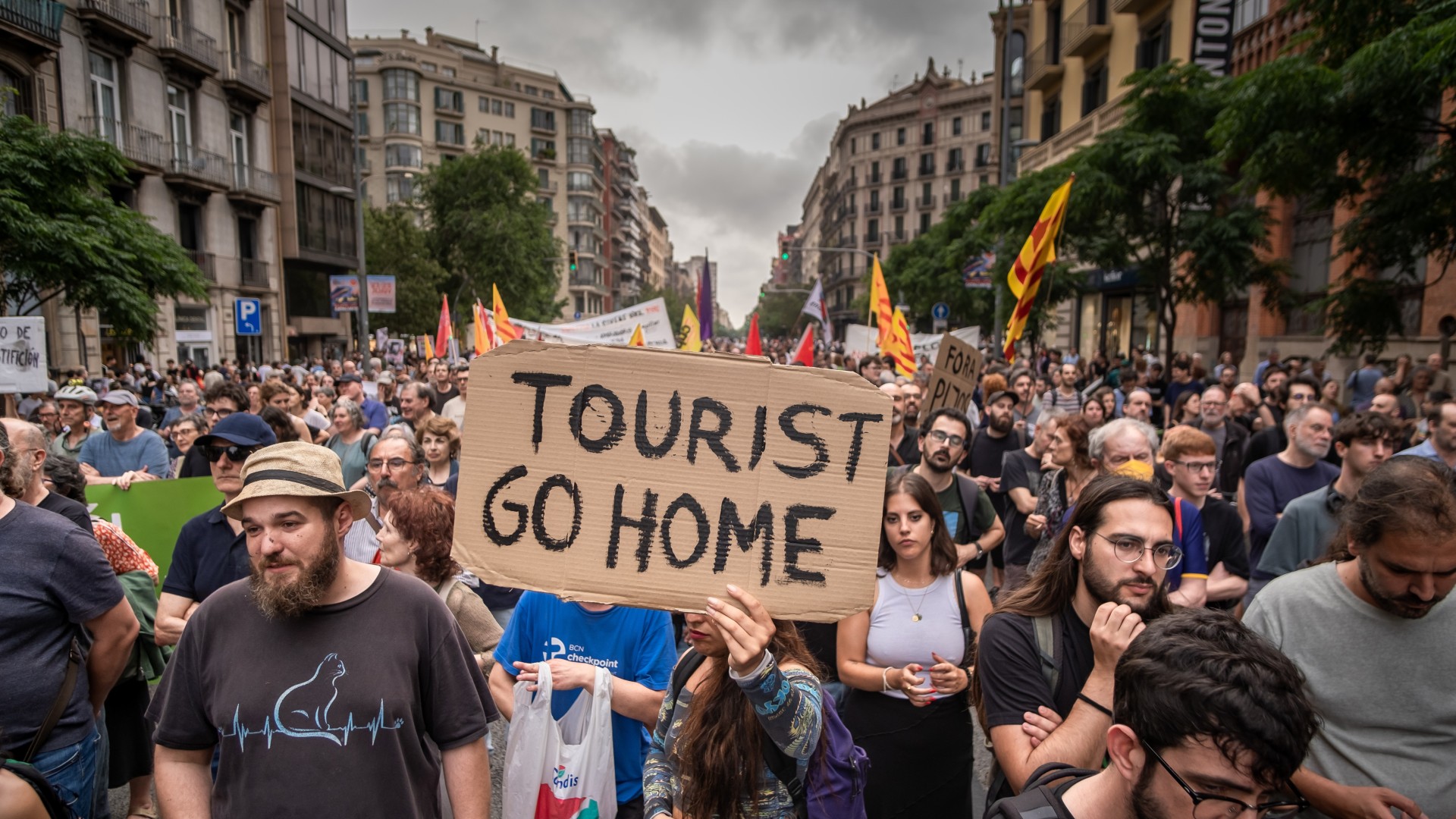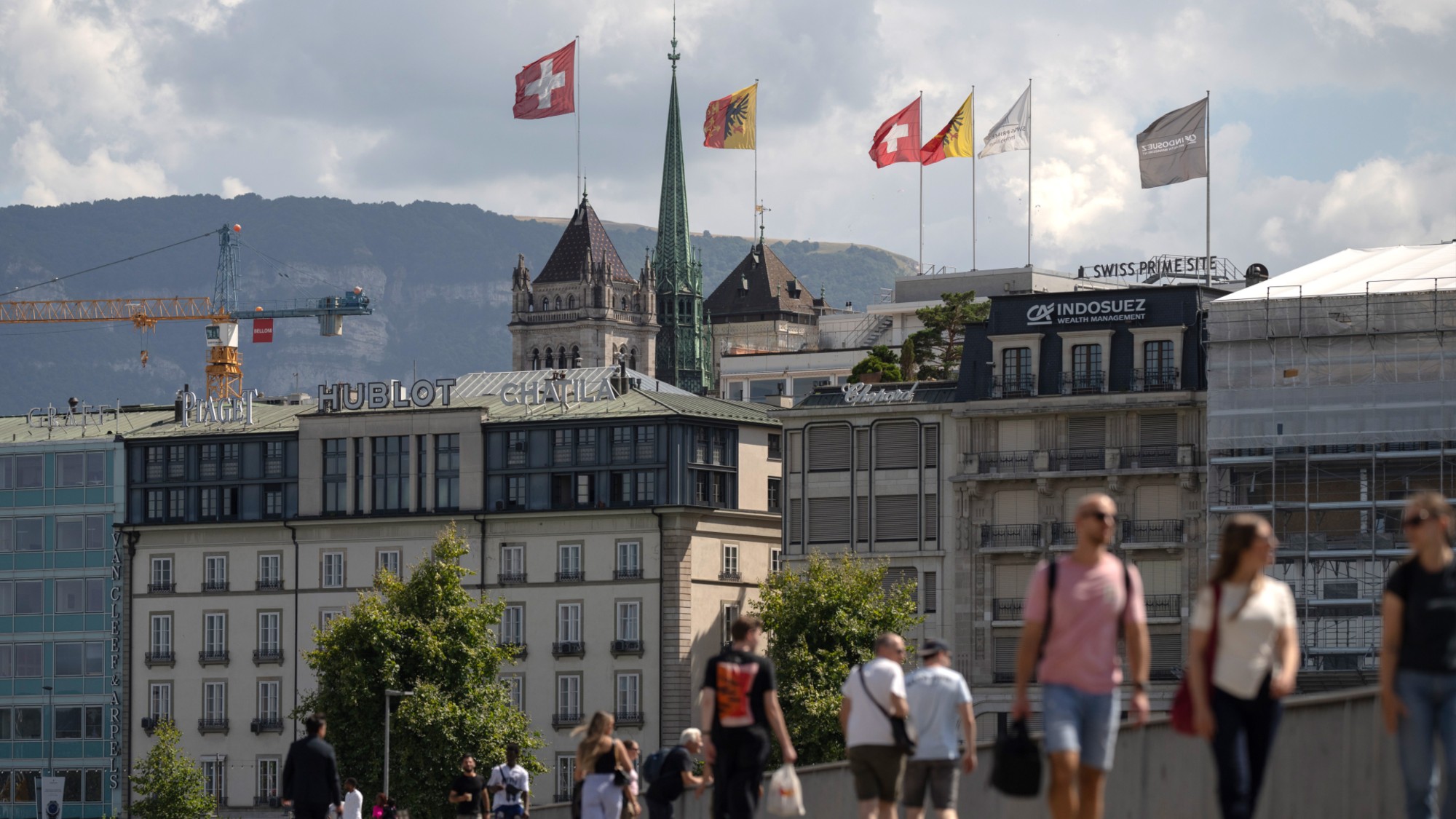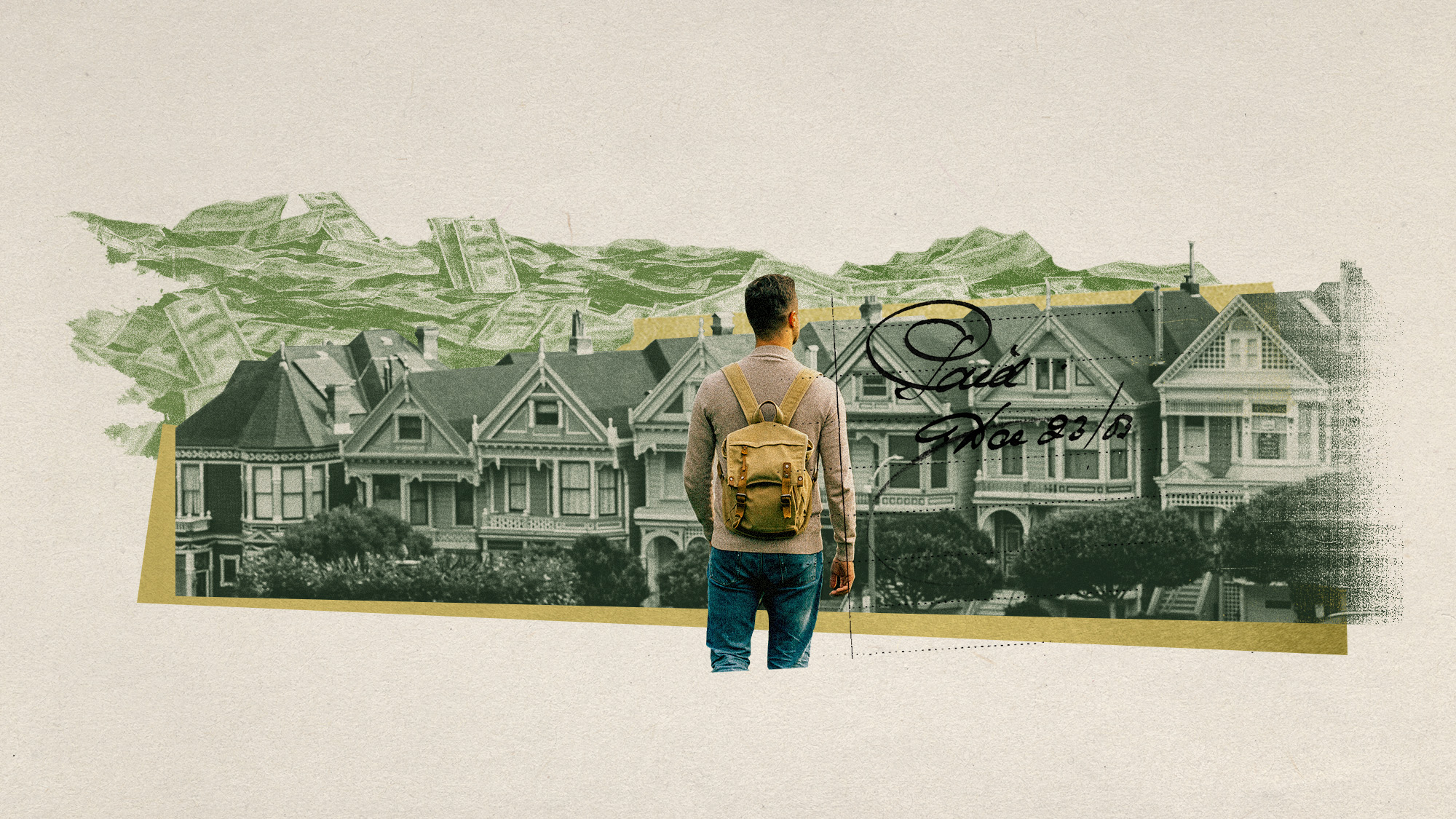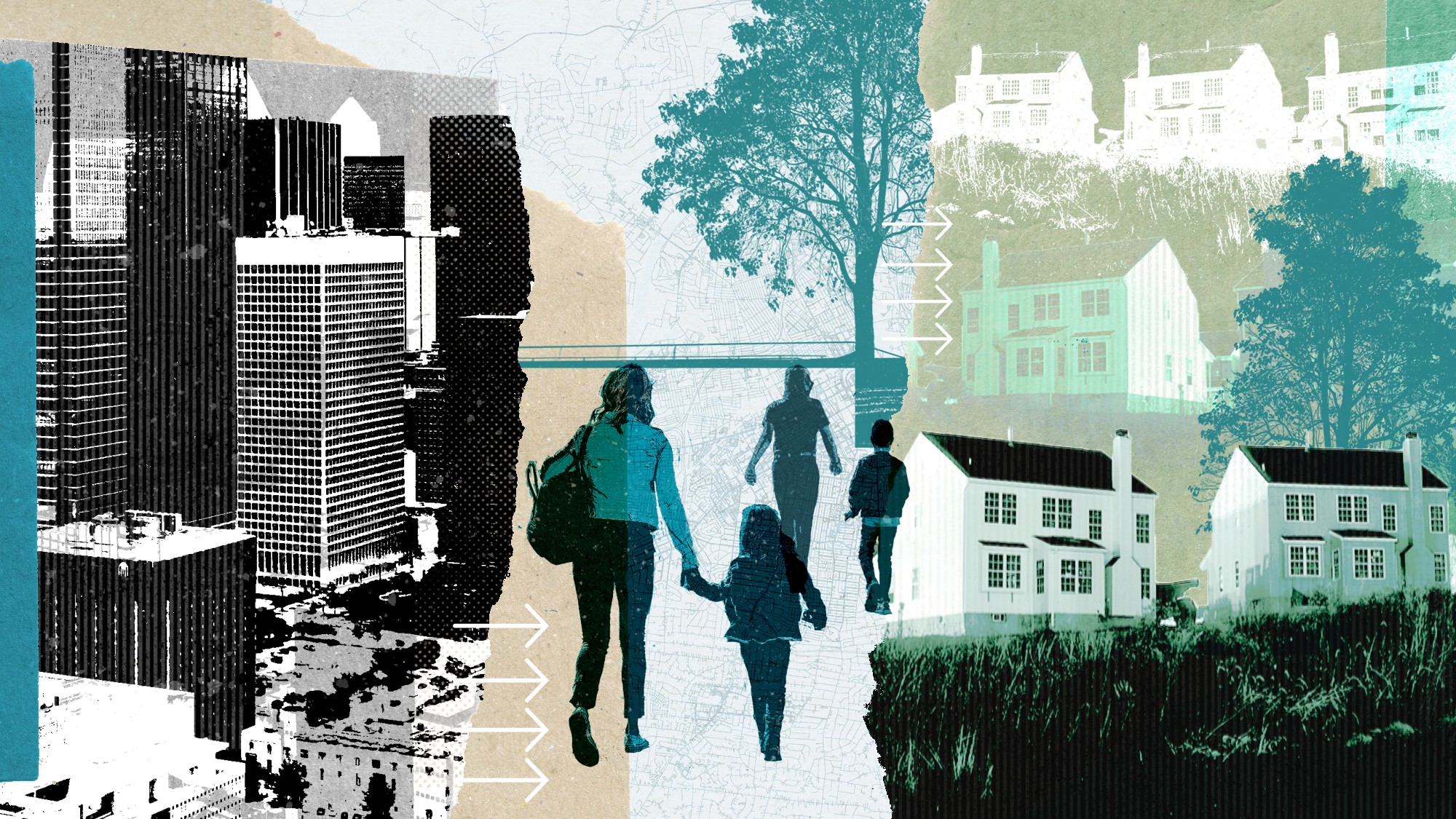Barcelona's Airbnb ban: a sign of things to come?
Crackdown on short-term lets to combat unaffordable housing echoes similar moves elsewhere, but anti-tourism protests could prove self-defeating

A free daily email with the biggest news stories of the day – and the best features from TheWeek.com
You are now subscribed
Your newsletter sign-up was successful
The mayor of Barcelona wants to ban short-term holiday lets in the city by 2028 in an "unexpectedly drastic move", said Sky News.
Jaume Collboni said he would drive Airbnb out of Catalonia's capital by not renewing licences for the 10,100 flats approved for short-term rental when they expire in 2028. Those apartments "will be used by the city's residents or will go on the market for rent or sale", he said, which would tackle the "largest problem" in Spain's most visited city.
Critics blame short-term rentals for skyrocketing rents and housing costs that are pricing out locals, amid a growing anti-tourism movement in Spain and around the world. "The decision puts the Catalan city at the forefront of a backlash against the effect of online-based short-stay rentals on cities," said The Times, "with the most radical global measure yet."
The Week
Escape your echo chamber. Get the facts behind the news, plus analysis from multiple perspectives.

Sign up for The Week's Free Newsletters
From our morning news briefing to a weekly Good News Newsletter, get the best of The Week delivered directly to your inbox.
From our morning news briefing to a weekly Good News Newsletter, get the best of The Week delivered directly to your inbox.
'With hordes of visitors comes great irresponsibility'
Barcelona is the "victim of its own success", said The Times in an editorial. Spain is the second most visited country in the world after France, and Barcelona attracted 10 million visitors last year. But that has created an "explosion in short-term rentals", many of which are advertised through Airbnb.
Rents in the city have increased by 70% over the past decade, and the cost of buying a house by nearly 40%. In 2016, Barcelona became the first major European city to fine Airbnb for its users letting unregistered properties, and cracked down on illegal apartments altogether. No new short-term licences have been granted since, and nearly 10,000 illegal apartments have been shut. Almost 3,500 are said to have been recovered as primary housing for local residents. Collboni believes that this latest move will "restore some fairness to Barcelona's overheated housing market".
You might say Barcelona is "taking back control of its private rental sector from the disruptor platform", said Paul Clements in The Independent – and "there are plenty of places in Britain that would like to follow their lead". Since its European launch in 2010, Airbnb has "dramatically reshaped short-term lettings markets, depleting housing stock with a negative knock-on for residents' rents". Just ask locals in Britain's "prettiest seaside villages – if you can find them".
Local governments in Lisbon, Berlin and the Canary Islands have announced restrictions on short-term rentals, and last September New York began enforcing a 2022 law that banned people from renting their homes for fewer than 30 days – a de facto ban on Airbnb. Similar legislation was set to kick in in Ireland in 2022, but has since been held up.
A free daily email with the biggest news stories of the day – and the best features from TheWeek.com
Yes, AirBnb "helped create new demand", said Clements. It "stretched the average tourist's length of stay", which has enabled "more than $10 billion in tourism taxes to be generated around the world". However, "with hordes of visitors comes great irresponsibility".
'Protesters should be careful what they wish for'
But anti-tourism protesters may be biting the hand that feeds them, said MailOnline. Take Mallorca. Last month up to 15,000 people took to the streets of Palma, the capital of the popular Balearic island, carrying posters that read "SOS residents" and "Enough mass tourism". Similar protests have taken place in Ibiza.
The Balearic president has said that Mallorca's 20 million annual tourists are "not sustainable". But tourism accounts for about 45% of the Balearic Islands' GDP, according to industry organisation Exceltur quoted in The Independent. Nearly half of those living in Mallorca are employed by the tourism industry
And protests are already putting off visitors. About 44% of those recently polled by Majorca Daily Bulletin said they would think twice about booking a holiday to the island. "If this survey is accurate, local protesters should be careful what they wish for," Paul Charles, CEO of travel consultancy The PC Agency, told MailOnline. It would be "a disaster for the area if the protests, however valid, cut off the flow of visitors and reduce income".
In Barcelona, Collboni is "making a mistake that will lead to higher poverty and unemployment", said the city's tourist apartments association Apartur.
Ultimately, the sentiment against mass tourism is understandable but "the dangers are obvious", said The Times. After all, 11% of Spain's GDP comes from tourism. "Regarding the hospitality industry, the clue is in the name. Barcelona may come to regret its hostility to visitors."
Harriet Marsden is a senior staff writer and podcast panellist for The Week, covering world news and writing the weekly Global Digest newsletter. Before joining the site in 2023, she was a freelance journalist for seven years, working for The Guardian, The Times and The Independent among others, and regularly appearing on radio shows. In 2021, she was awarded the “journalist-at-large” fellowship by the Local Trust charity, and spent a year travelling independently to some of England’s most deprived areas to write about community activism. She has a master’s in international journalism from City University, and has also worked in Bolivia, Colombia and Spain.
-
 How the FCC’s ‘equal time’ rule works
How the FCC’s ‘equal time’ rule worksIn the Spotlight The law is at the heart of the Colbert-CBS conflict
-
 What is the endgame in the DHS shutdown?
What is the endgame in the DHS shutdown?Today’s Big Question Democrats want to rein in ICE’s immigration crackdown
-
 ‘Poor time management isn’t just an inconvenience’
‘Poor time management isn’t just an inconvenience’Instant Opinion Opinion, comment and editorials of the day
-
 The EU’s war on fast fashion
The EU’s war on fast fashionIn the Spotlight Bloc launches investigation into Shein over sale of weapons and ‘childlike’ sex dolls, alongside efforts to tax e-commerce giants and combat textile waste
-
 Why quitting your job is so difficult in Japan
Why quitting your job is so difficult in JapanUnder the Radar Reluctance to change job and rise of ‘proxy quitters’ is a reaction to Japan’s ‘rigid’ labour market – but there are signs of change
-
 Did markets’ ‘Sell America’ trade force Trump to TACO on Greenland?
Did markets’ ‘Sell America’ trade force Trump to TACO on Greenland?Today’s Big Question Investors navigate a suddenly uncertain global economy
-
 Why Saudi Arabia is muscling in on the world of anime
Why Saudi Arabia is muscling in on the world of animeUnder the Radar The anime industry is the latest focus of the kingdom’s ‘soft power’ portfolio
-
 Switzerland could experience unique economic problems from Trump's tariffs
Switzerland could experience unique economic problems from Trump's tariffsIn the Spotlight The current US tariff rate on Switzerland is among the highest in the world
-
 Is Trump's tariffs plan working?
Is Trump's tariffs plan working?Today's Big Question Trump has touted 'victories', but inflation is the 'elephant in the room'
-
 AI is creating a luxury housing renaissance in San Francisco
AI is creating a luxury housing renaissance in San FranciscoUnder the Radar Luxury homes in the city can range from $7 million to above $20 million
-
 Exurbs: America's biggest housing trend you haven't heard of
Exurbs: America's biggest housing trend you haven't heard ofUnder the Radar Northeastern exurbs were the nation's biggest housing markets in 2024